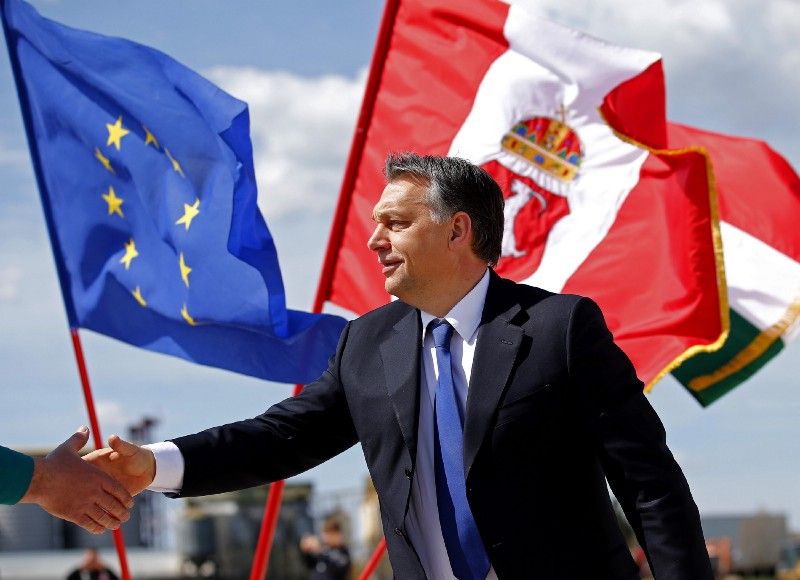April 03, 2018
This Sunday, Hungarian Prime Minister Viktor Orban is set to win another term in national elections, giving him a fresh mandate to advance his project of building what he calls an “illiberal” state at the heart of Europe.
Over the past eight years, Orban’s democratically-elected governments have, in fact, behaved less and less democratically — steadily centralizing power, eroding the independence of the courts, the media, and even cultural institutions.
For Orban and his defenders, this is a closing of ranks meant to defend Hungary’s interests against EU bureaucrats whose policies — particularly on the resettlement of refugees from Syria and North Africa — threaten to dilute Hungary’s traditional Christian identity and reduce its sovereignty. Orban himself openly looks to the authoritarian efficiency of Xi Jinping’s China and the conservative nationalism of Vladimir Putin’s Russia as examples.
His critics, meanwhile, say he has mounted an opportunistic political power play that has enriched friendly oligarchs, deepened economic inequality, and undermined the accountability of the government.
All of this presents a growing existential challenge for the EU. Alongside Poland’s move in a similarly illiberal direction, Orban’s continued strength sharpens two critical questions: First, how to impose costs on countries that buck EU institutions and ideals without alienating them further. And second, how to reconcile the desire of core Western European countries like Germany and France, which seek to further integrate the bloc, with Eastern countries’ resurgent nationalism.
More For You
- YouTube
Who decides the boundaries for artificial intelligence, and how do governments ensure public trust? Speaking at the 2026 World Economic Forum in Davos, Arancha González Laya, Dean of the Paris School of International Affairs and former Foreign Minister of Spain, emphasized the importance of clear regulations to maintain trust in technology.
Most Popular
Moldovan President Maia Sandu speaks during a Council of Europe diplomatic conference to launch the International Claims Commission for Ukraine, aimed at handling compensation claims related to Russia's war in Ukraine, in The Hague, Netherlands, December 16, 2025.
REUTERS/Piroschka van de Wouw
The president of the tiny eastern European country has suggested possibly merging with a neighbor.
Hard numbers: US pitches “New Gaza,” Japan paves way for snap elections, “Sinners” smashes records, & More
Jan 23, 2026
Middle East negotiator and son-in-law of President Trump, Jared Kushner talks with Israeli diplomats following a joint press conference in the State Dining Room of the White House in Washington, DC, USA, 29 September 2025.
$25 billion: The minimum amount of investment required to fulfil Jared Kushner’s ambitious property plan for Gaza.
- YouTube
Who decides how much control a country should have over its technology? Speaking at the 2026 World Economic Forum in Davos, former UK Prime Minister Rishi Sunak discussed the balance between national sovereignty and global interdependence.
© 2025 GZERO Media. All Rights Reserved | A Eurasia Group media company.
